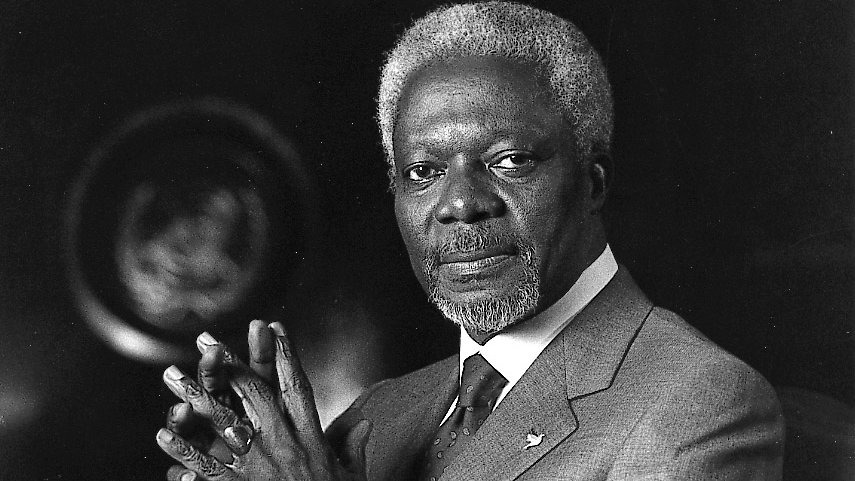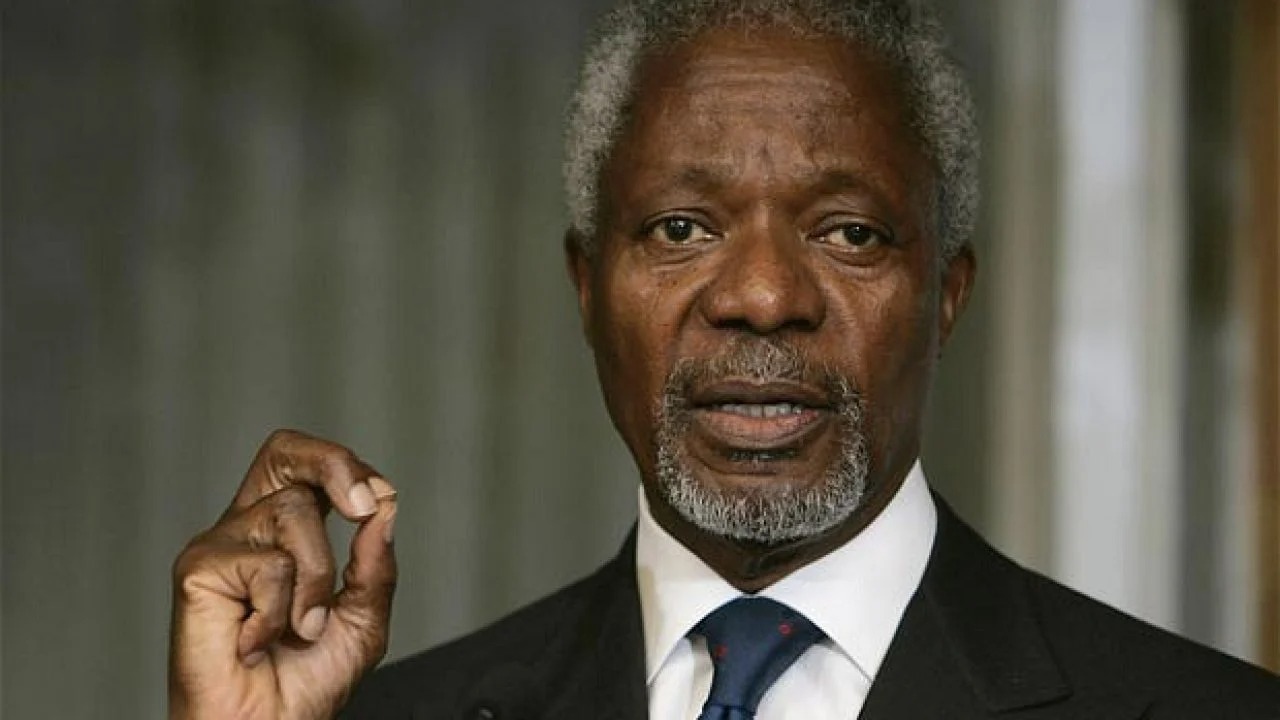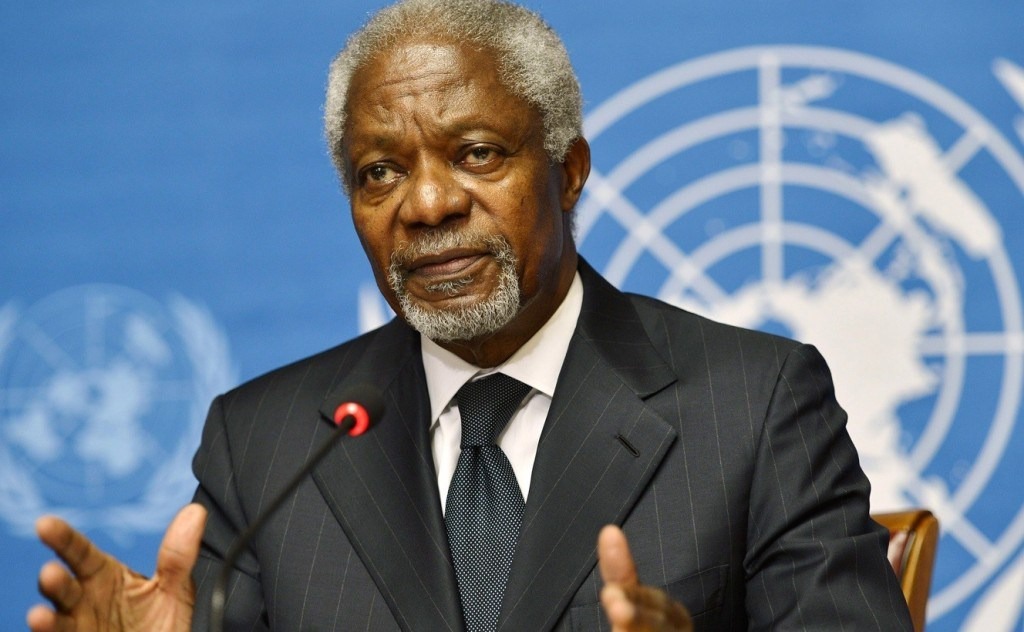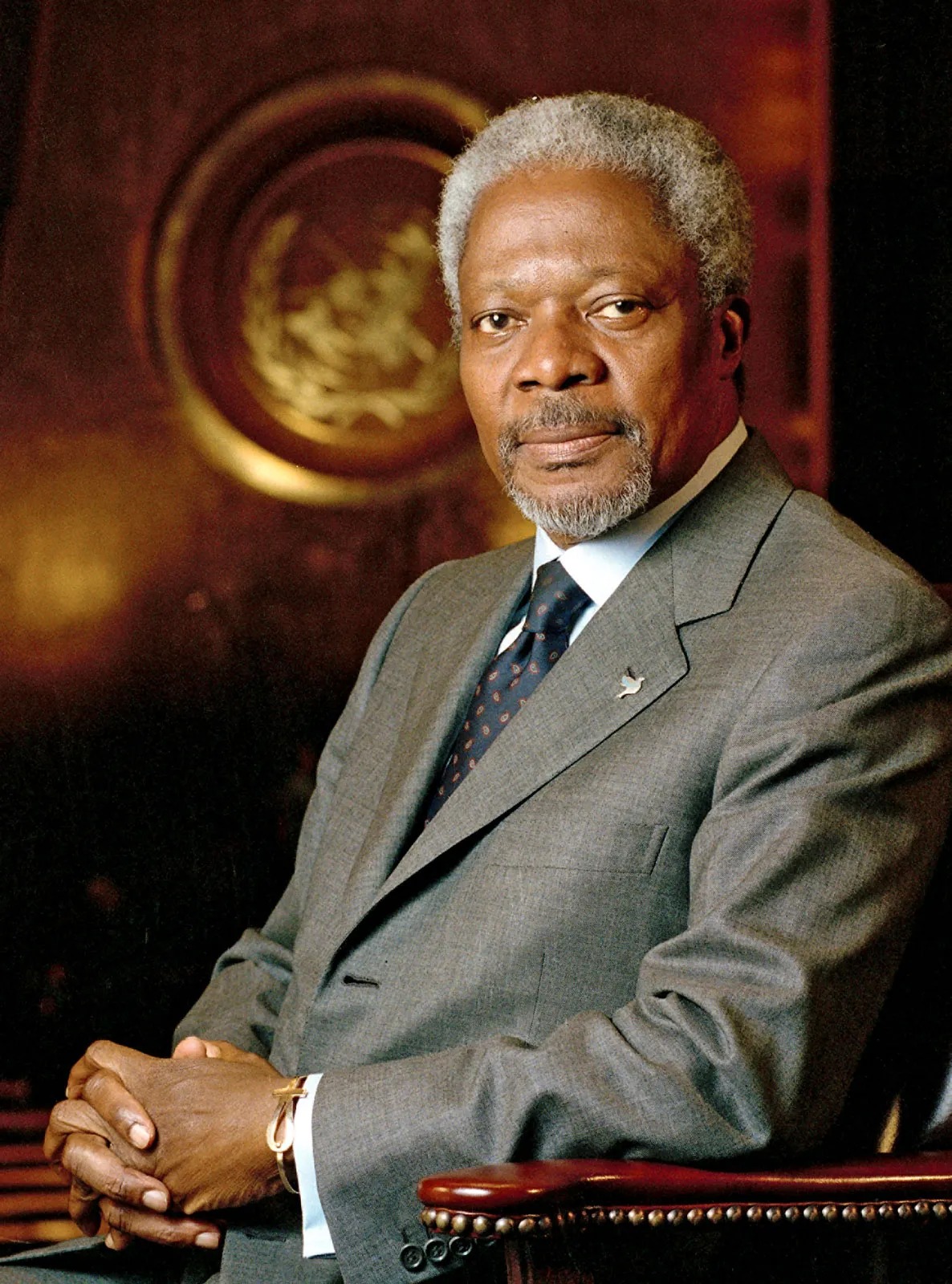Kofi Annan was a Ghanaian diplomat who served as the seventh Secretary-General of the United Nations from 1997 to 2006. He was the first black African to hold the position and was widely recognized as one of the world’s most respected and influential leaders.
Early Life and Education
Kofi Annan was born in Kumasi, Ghana, on April 8, 1938, to Henry Reginald Annan and Victoria Annan. He attended Mfantsipim School, a Methodist boarding school in Cape Coast, Ghana, and later enrolled at the Kumasi College of Science and Technology, now known as the Kwame Nkrumah University of Science and Technology.
In 1961, Kofi Annan received a scholarship to study economics at Macalester College in St. Paul, Minnesota, in the United States. He later obtained a master’s degree in management from the Massachusetts Institute of Technology (MIT) and continued his studies at the Graduate Institute of International and Development Studies in Geneva, Switzerland.
Career in Diplomacy
Kofi Annan began his career in international diplomacy in 1962 when he joined the World Health Organization (WHO) in Geneva, Switzerland. He worked for the WHO for several years before joining the United Nations in 1967.
During his tenure at the United Nations, Kofi Annan held several key positions, including the Under-Secretary-General for Peacekeeping Operations and the Head of the Department of Political Affairs. He played a vital role in many of the United Nations’ most significant achievements, including the creation of the Global Fund to Fight AIDS, Tuberculosis and Malaria and the establishment of the Millennium Development Goals.
In 1997, Kofi Annan was elected as the Secretary-General of the United Nations, a position he held for two terms until 2006. During his tenure, he worked tirelessly to promote peace, human rights, and social justice around the world. He was a passionate advocate for reforming the United Nations and strengthening its role in global governance.
Legacy and Honors
Kofi Annan’s legacy as a global leader is unmatched. He was awarded the Nobel Peace Prize in 2001, jointly with the United Nations, for his efforts to promote international cooperation and peace. He also received numerous other honors and awards throughout his career, including the Order of the Star of Ghana, Ghana’s highest national honor.
Kofi Annan was widely regarded as a champion of Africa and a leading voice in the fight against poverty, disease, and injustice on the continent. He founded the Kofi Annan Foundation, an organization that works to promote good governance, peace, and security in Africa and around the world.
Kofi Annan was a visionary leader and diplomat whose impact on the world will be felt for generations to come. His achievements as a Ghanaian global leader are a testament to the power of diplomacy, cooperation, and international leadership. Kofi Annan’s legacy will continue to inspire and guide future generations of leaders in Ghana and around the world












